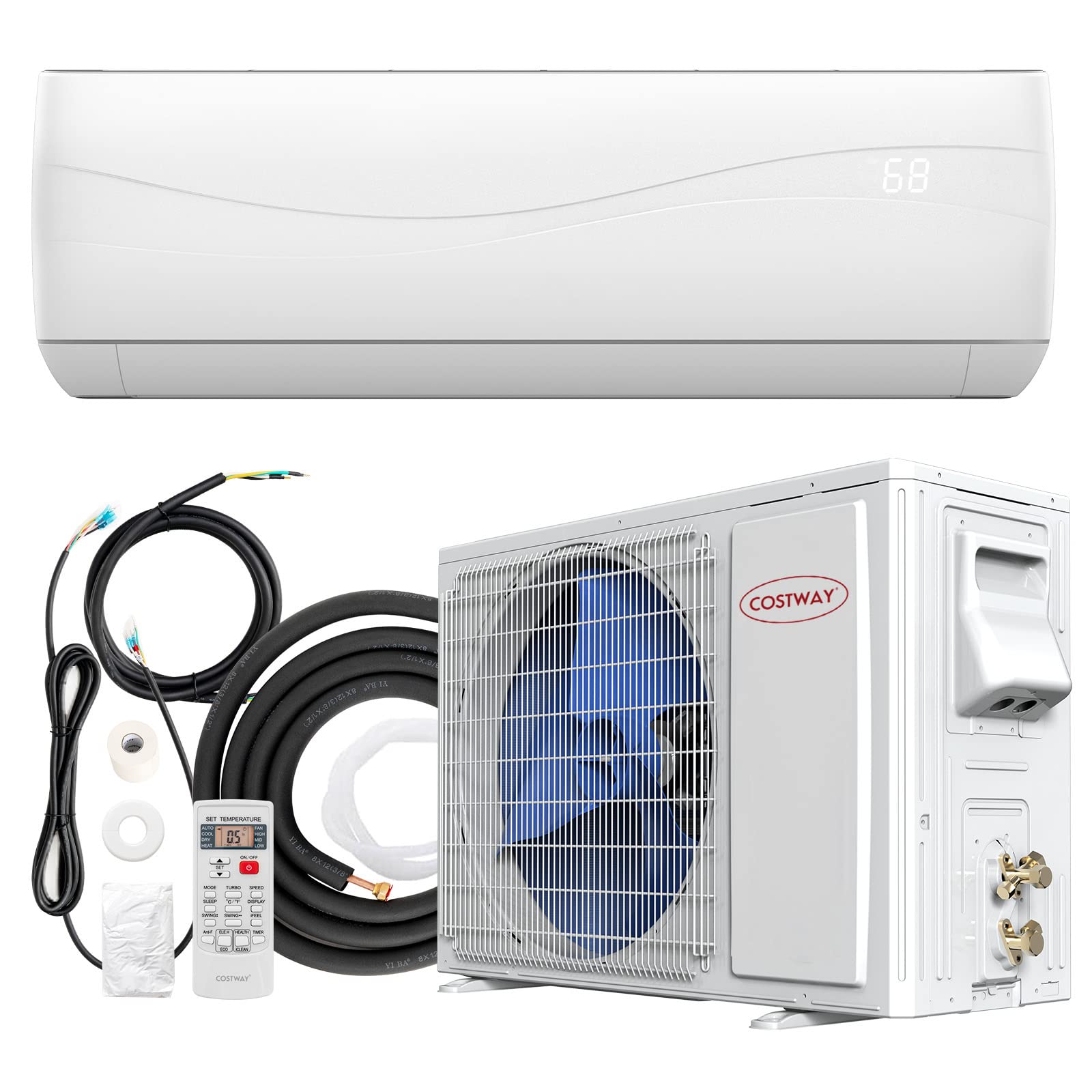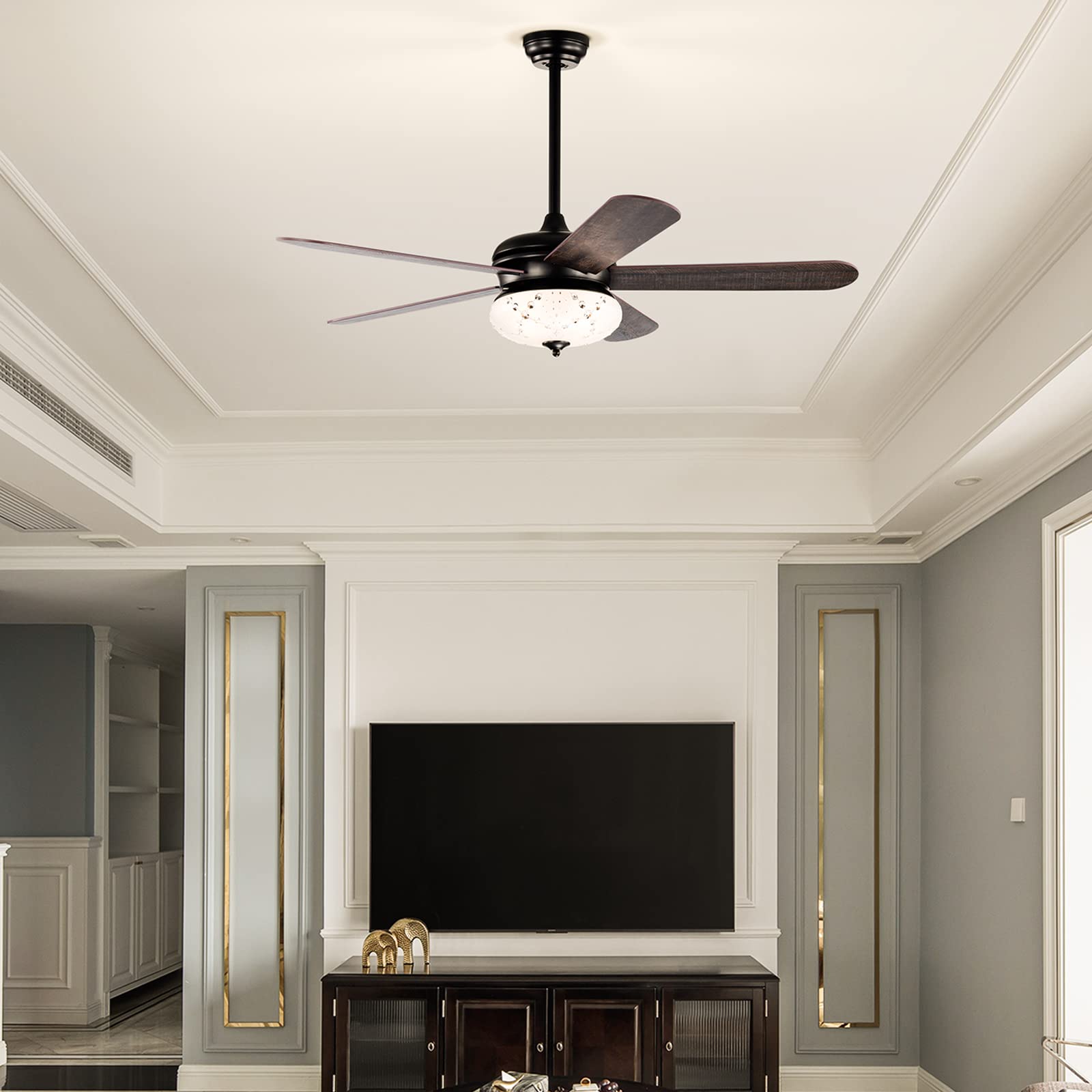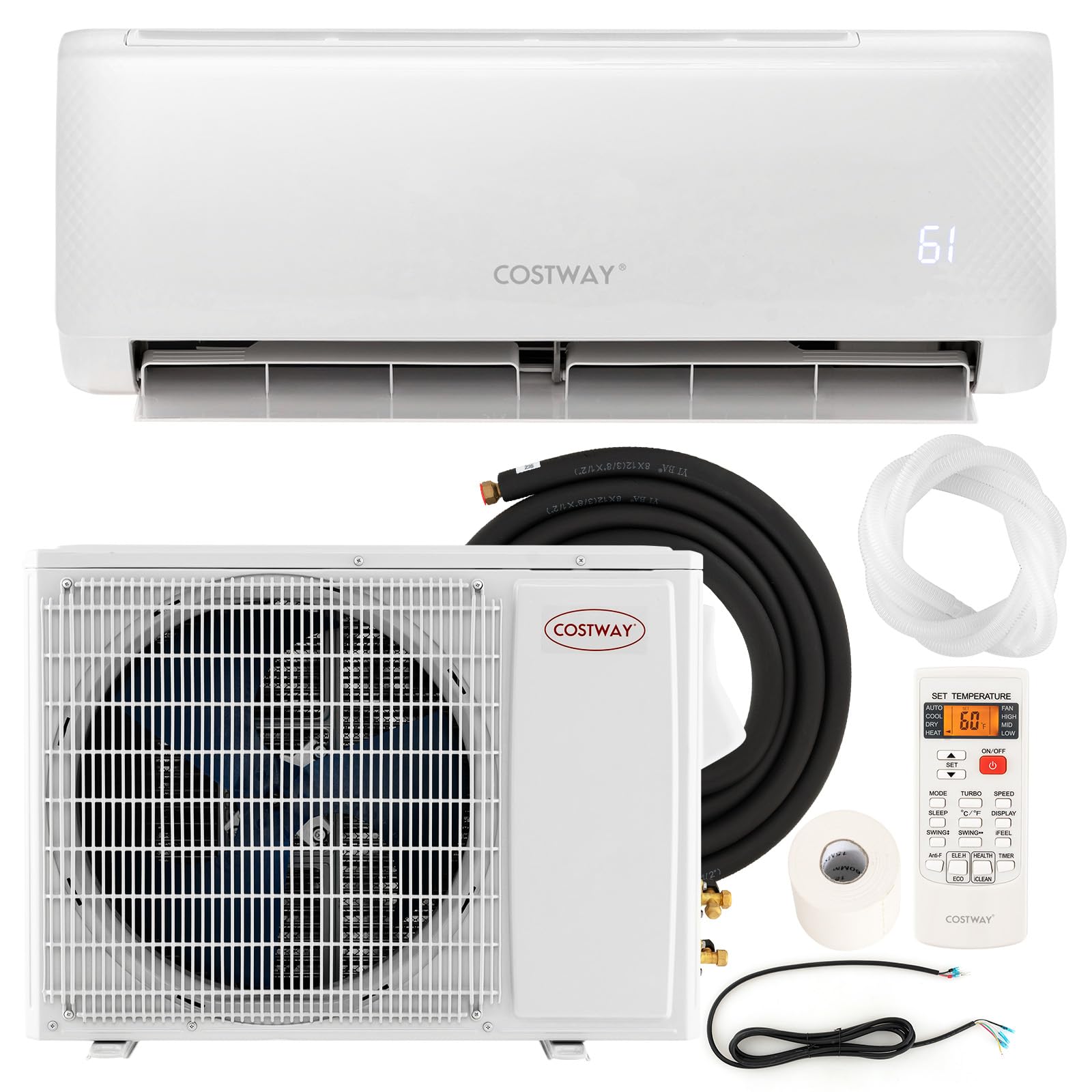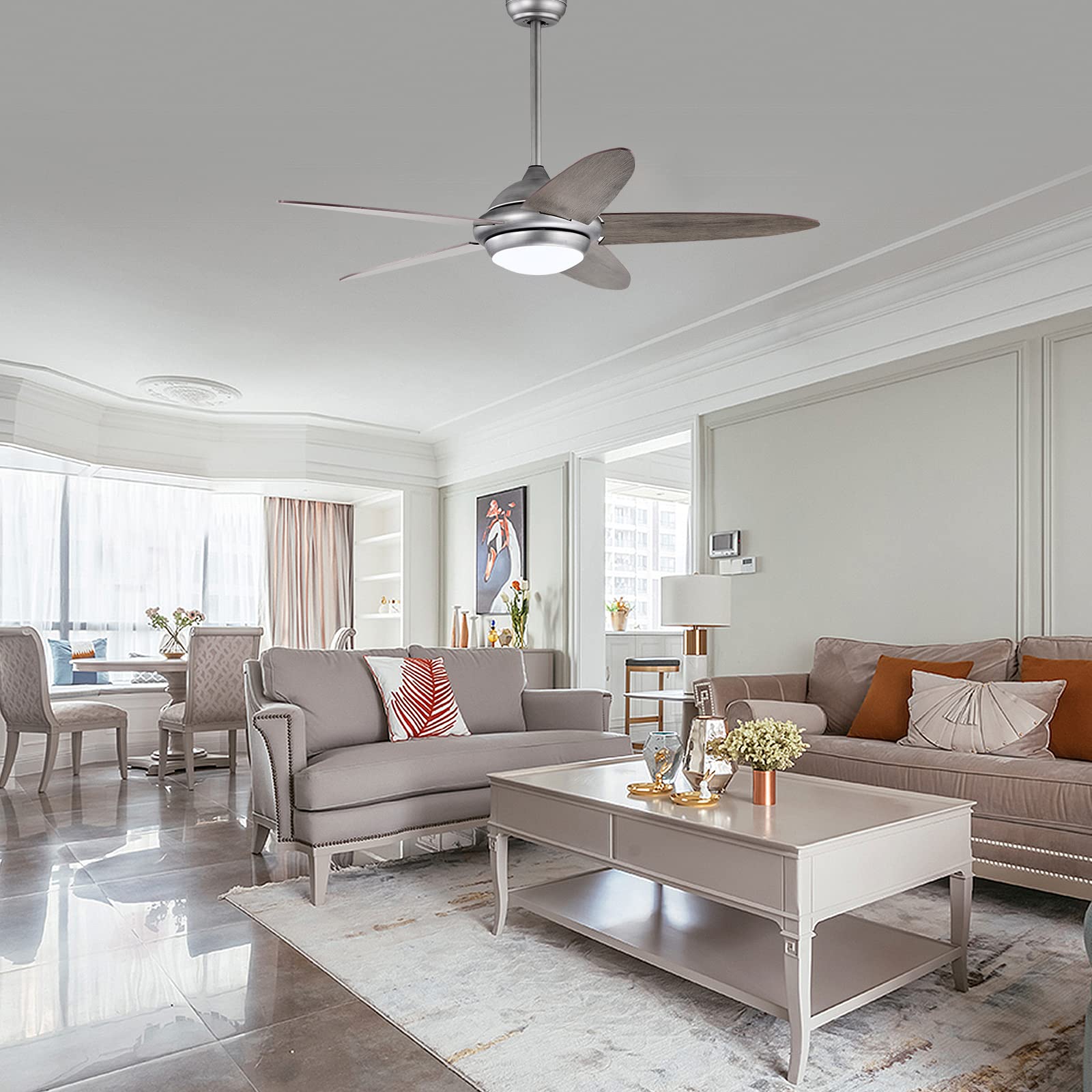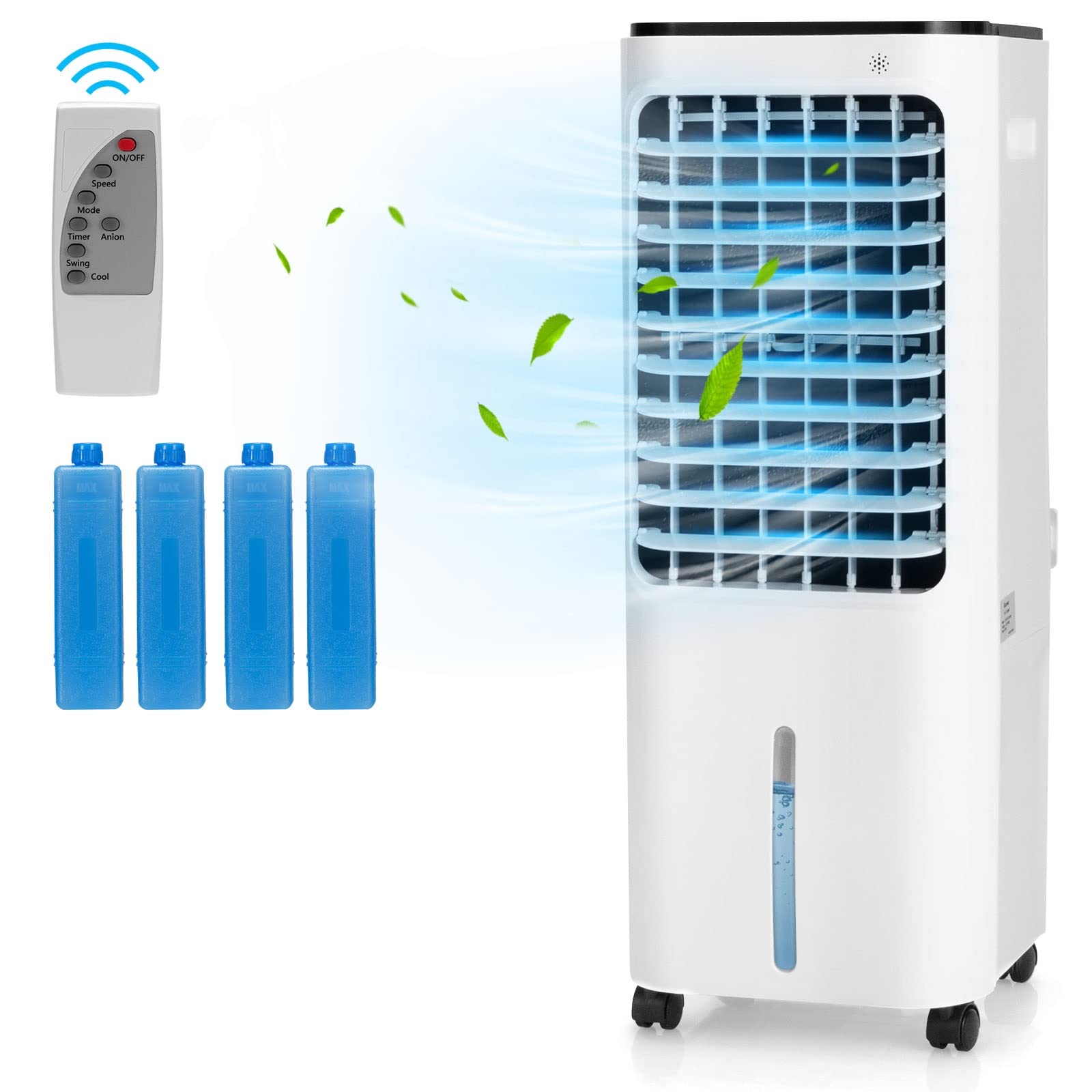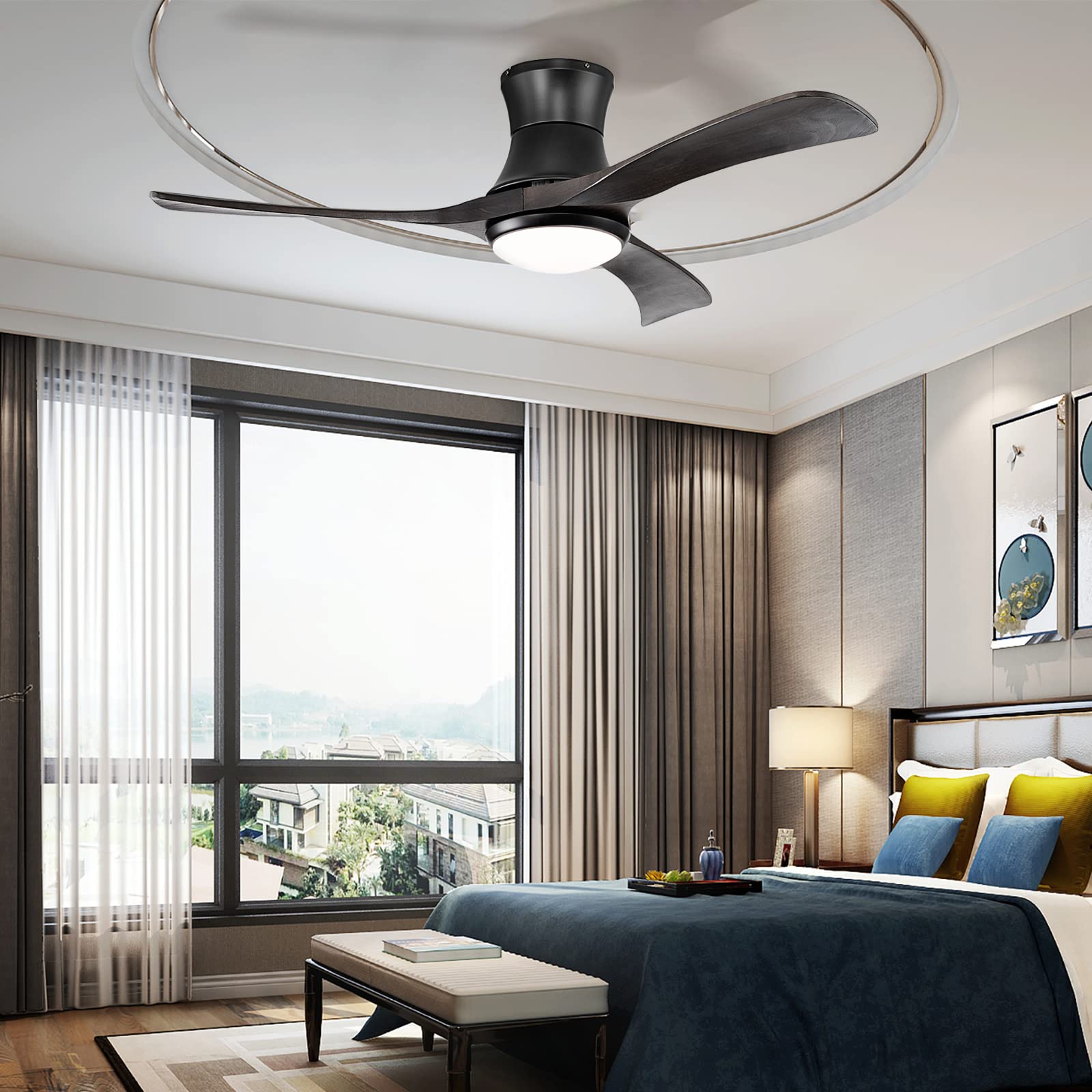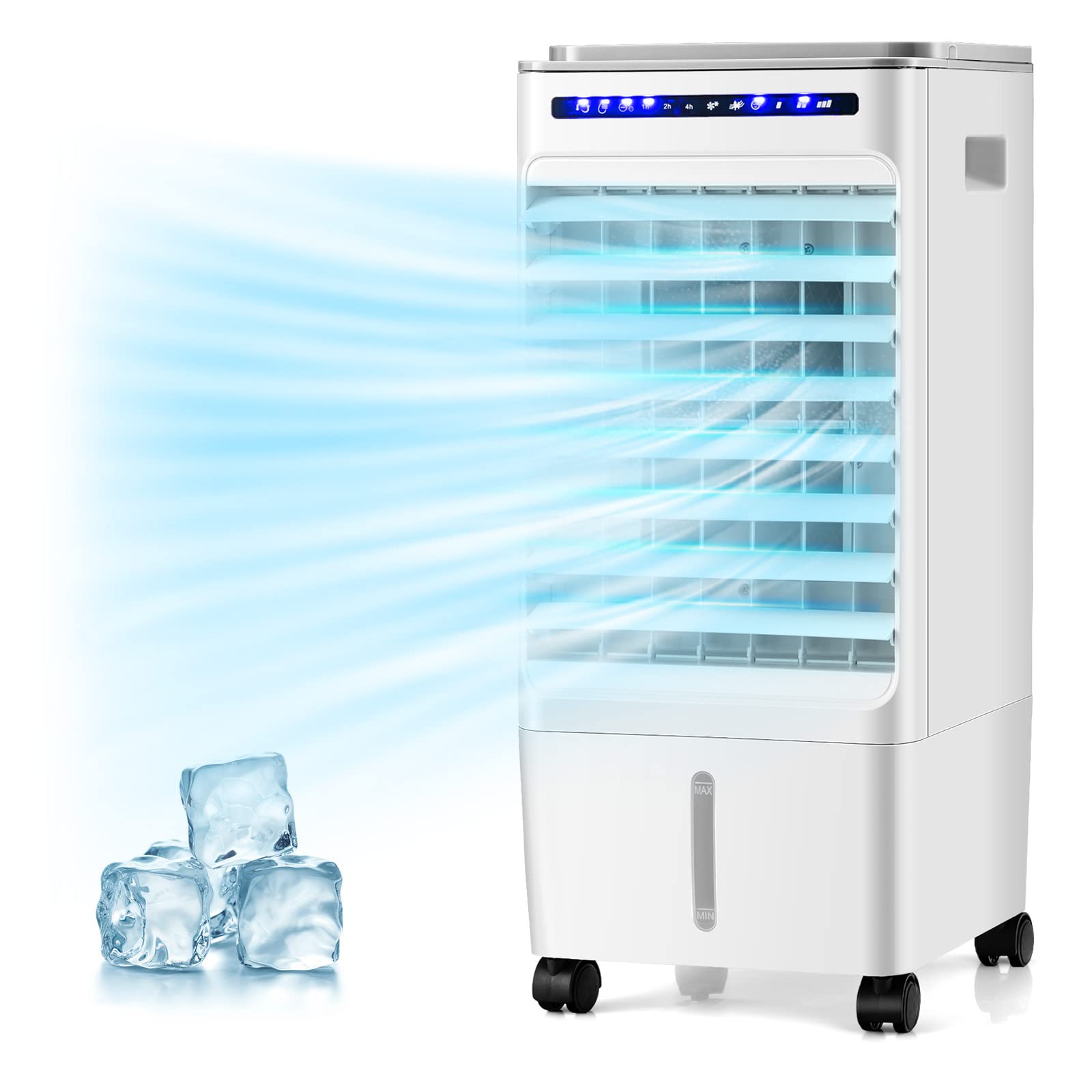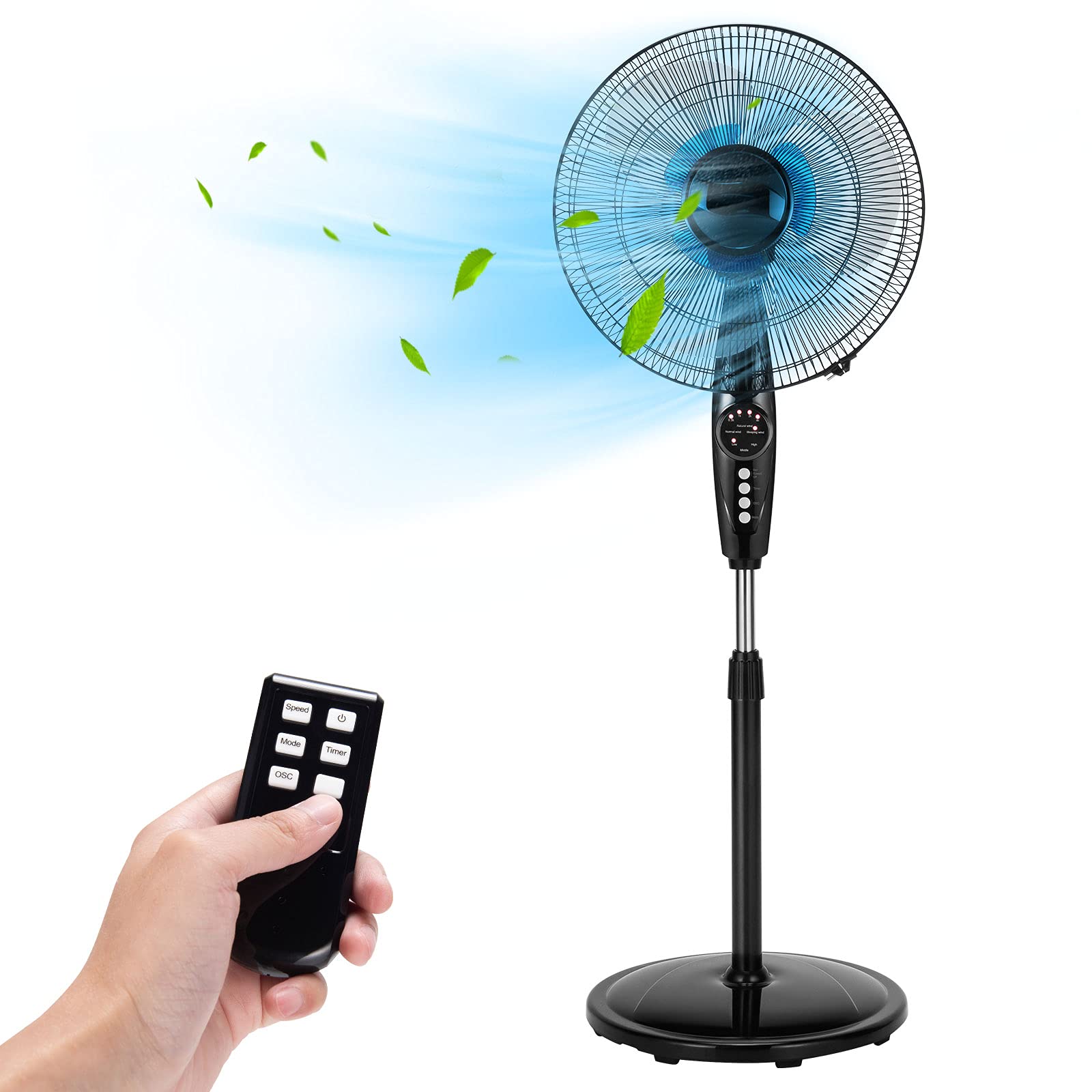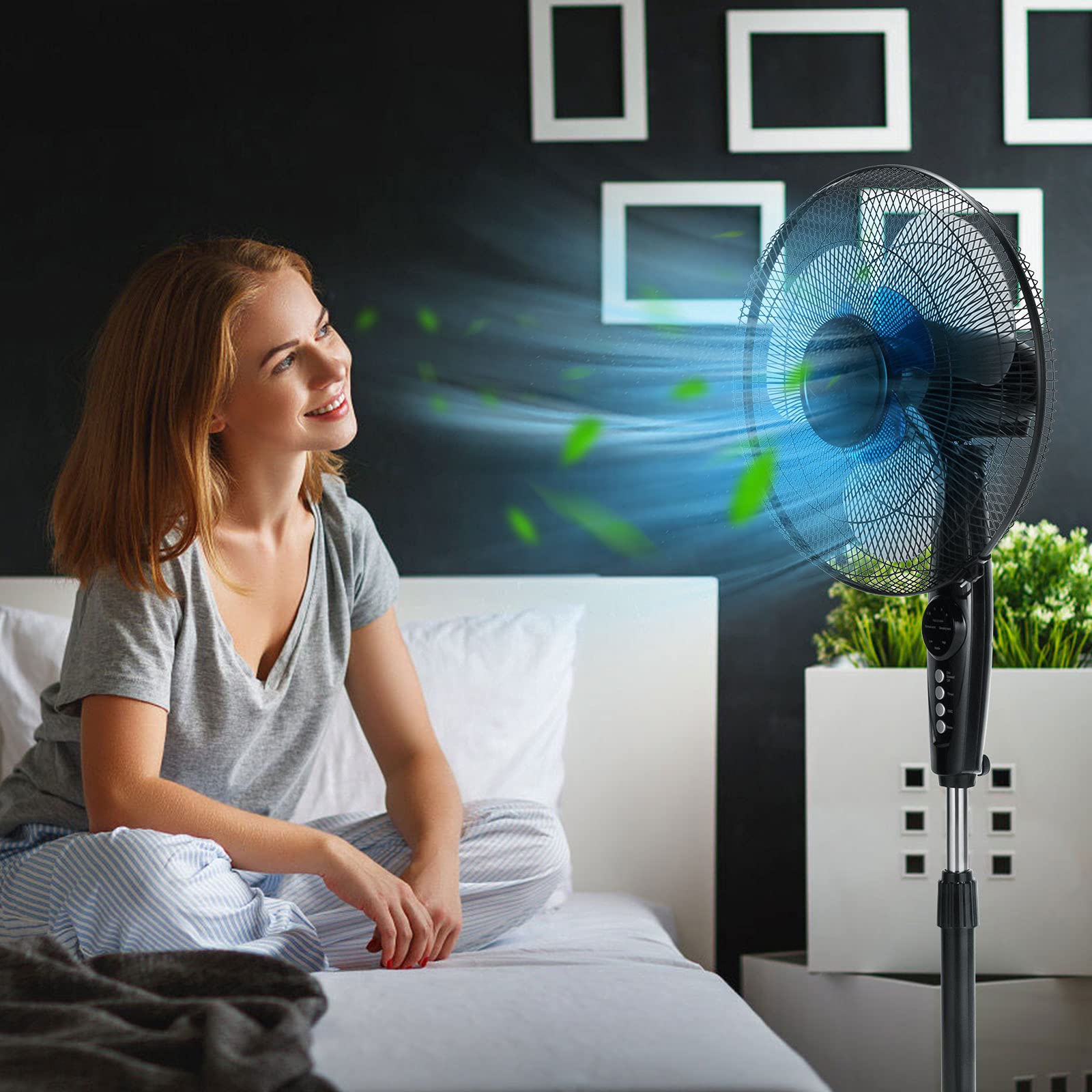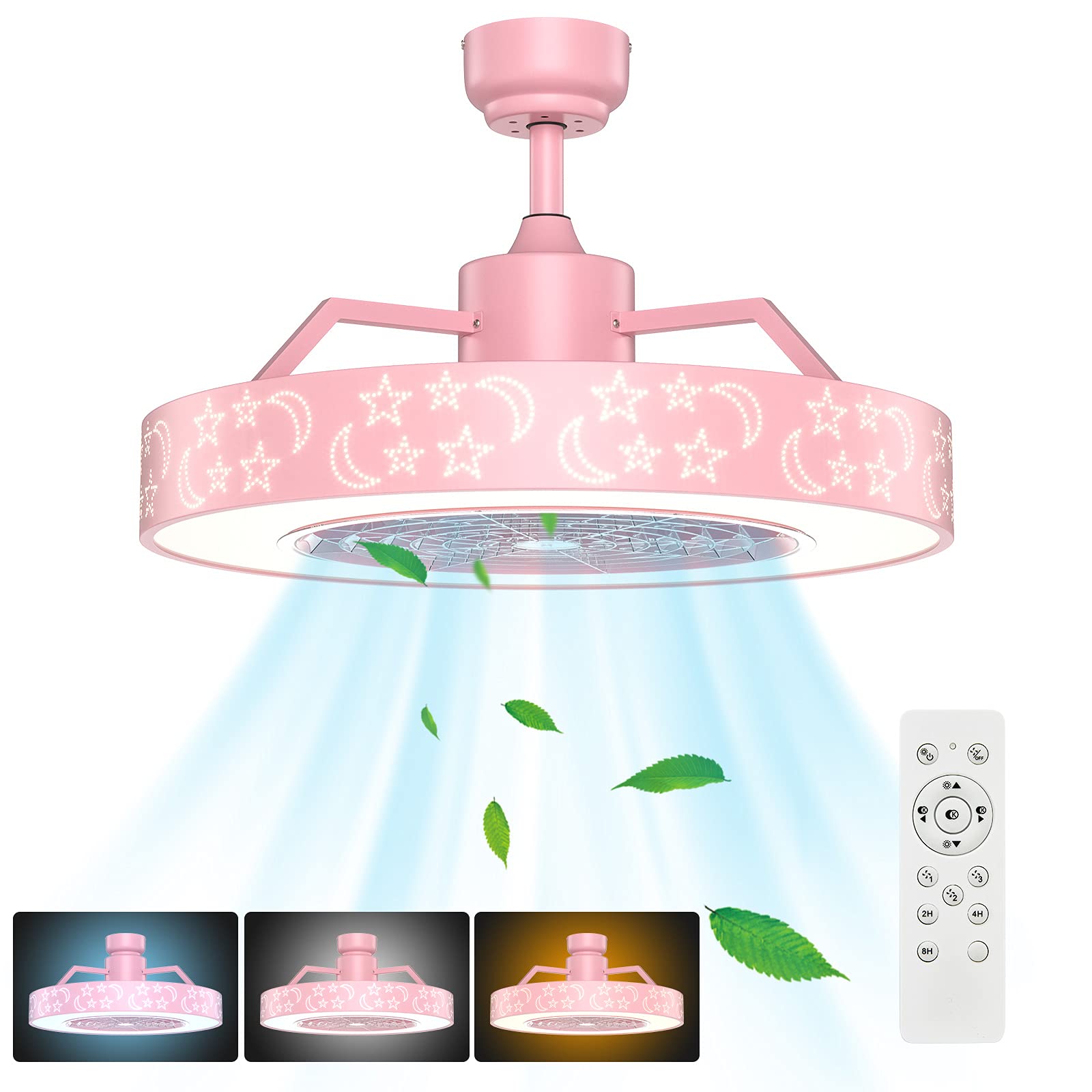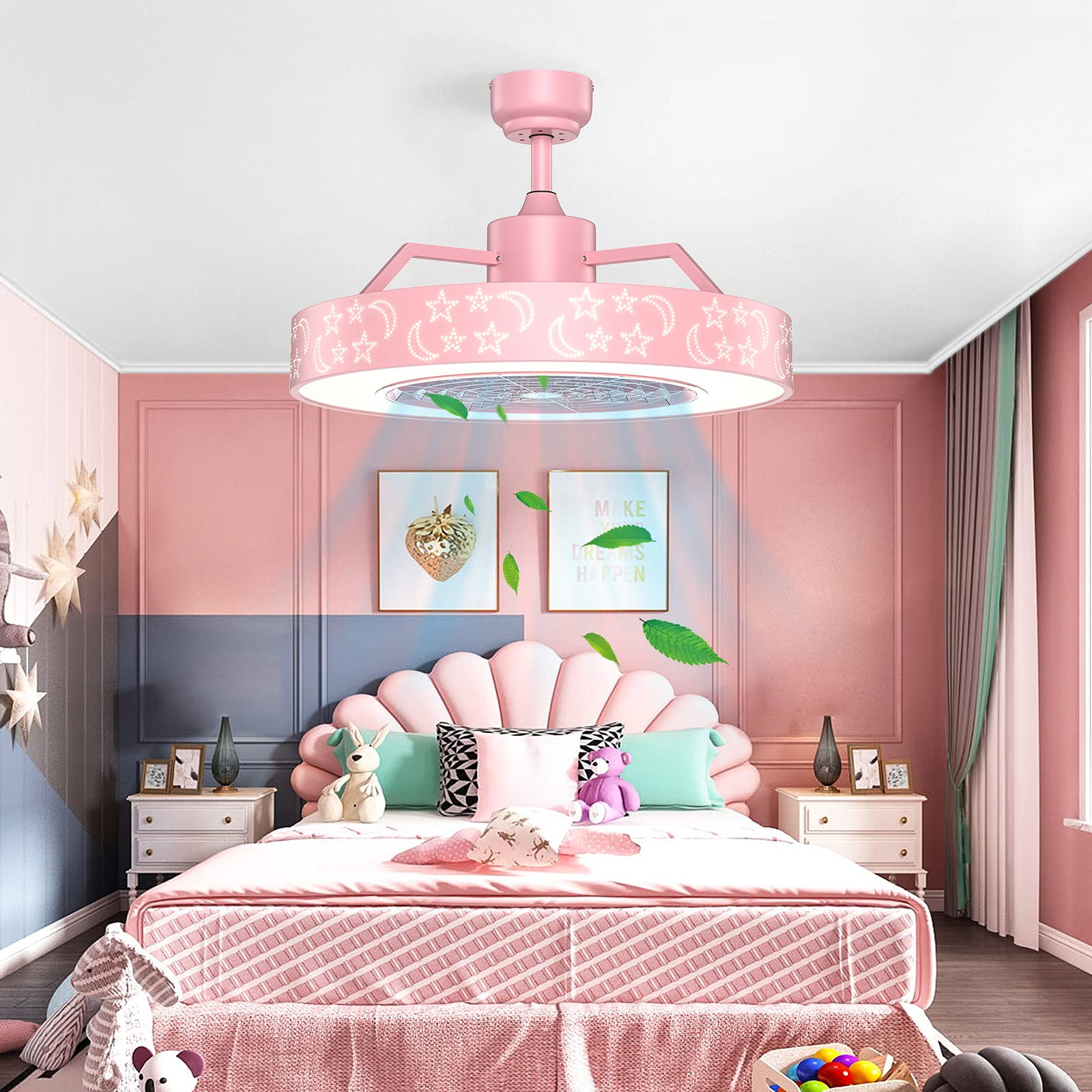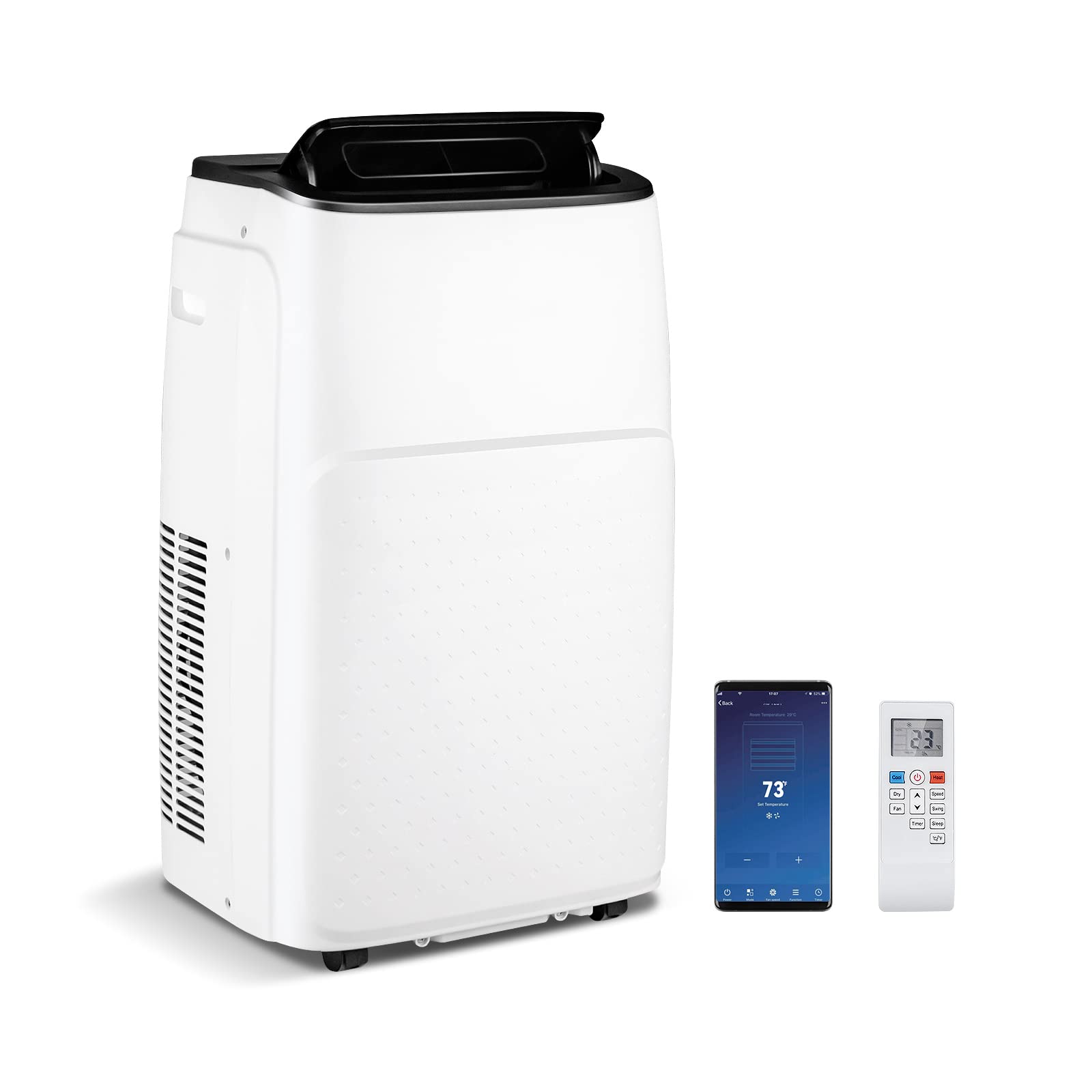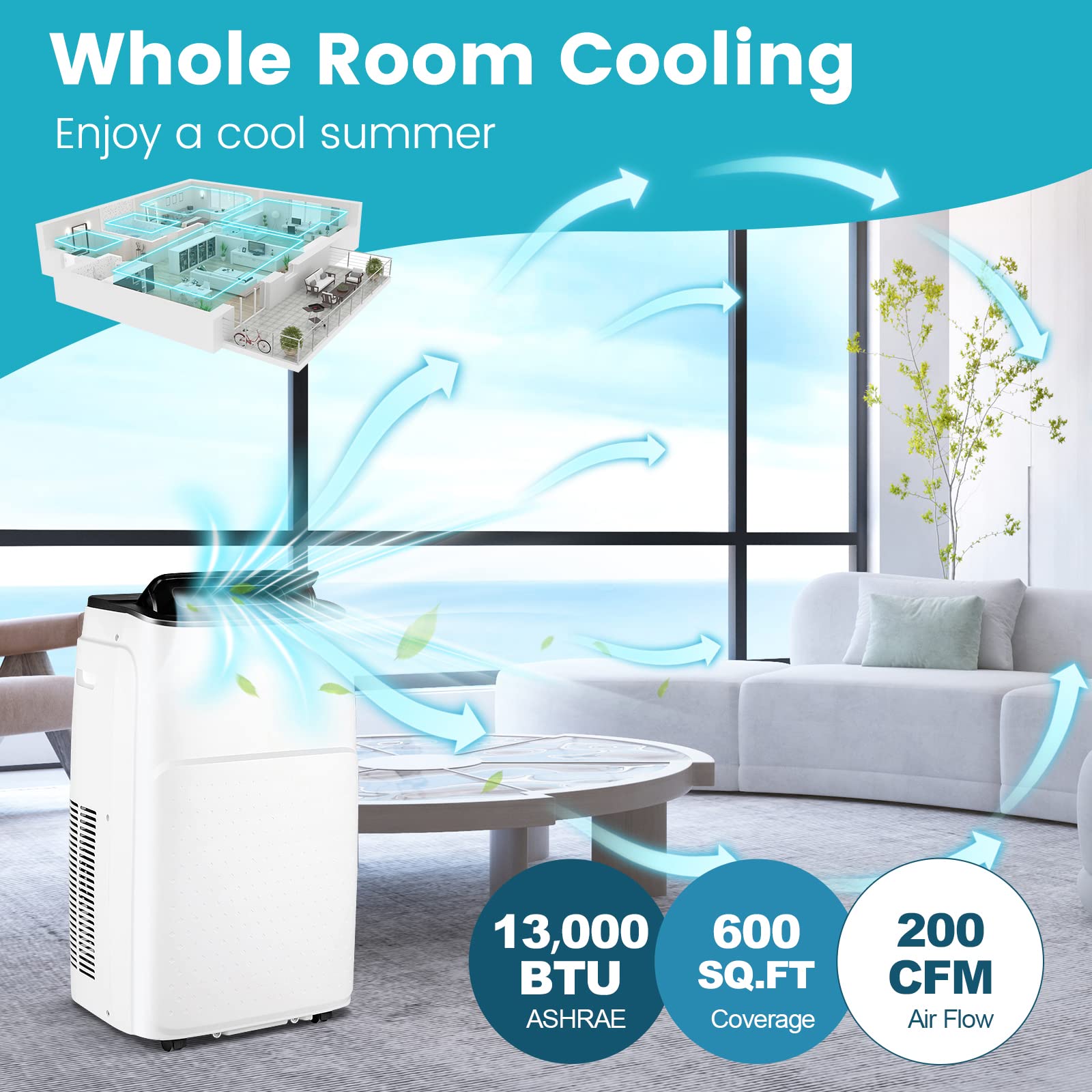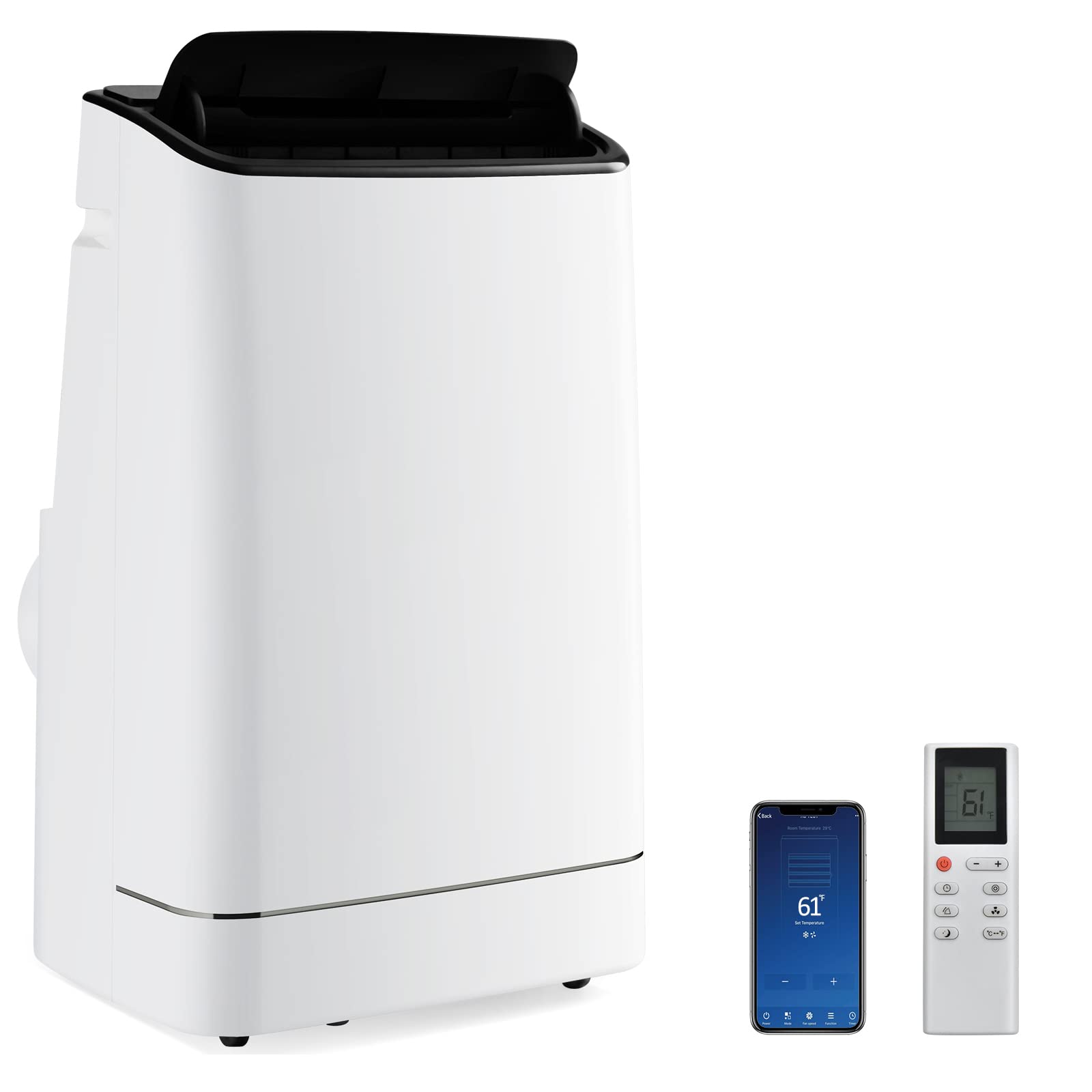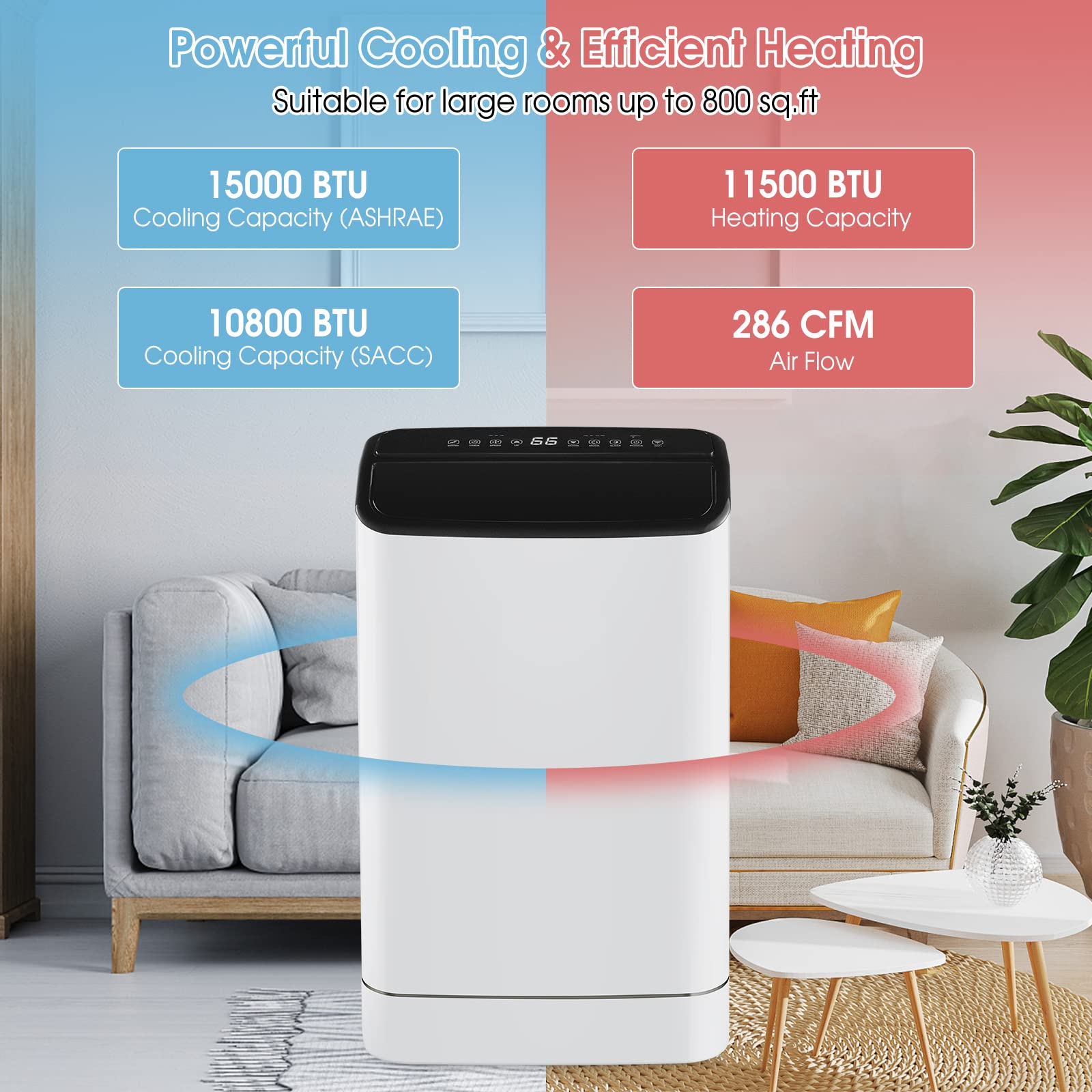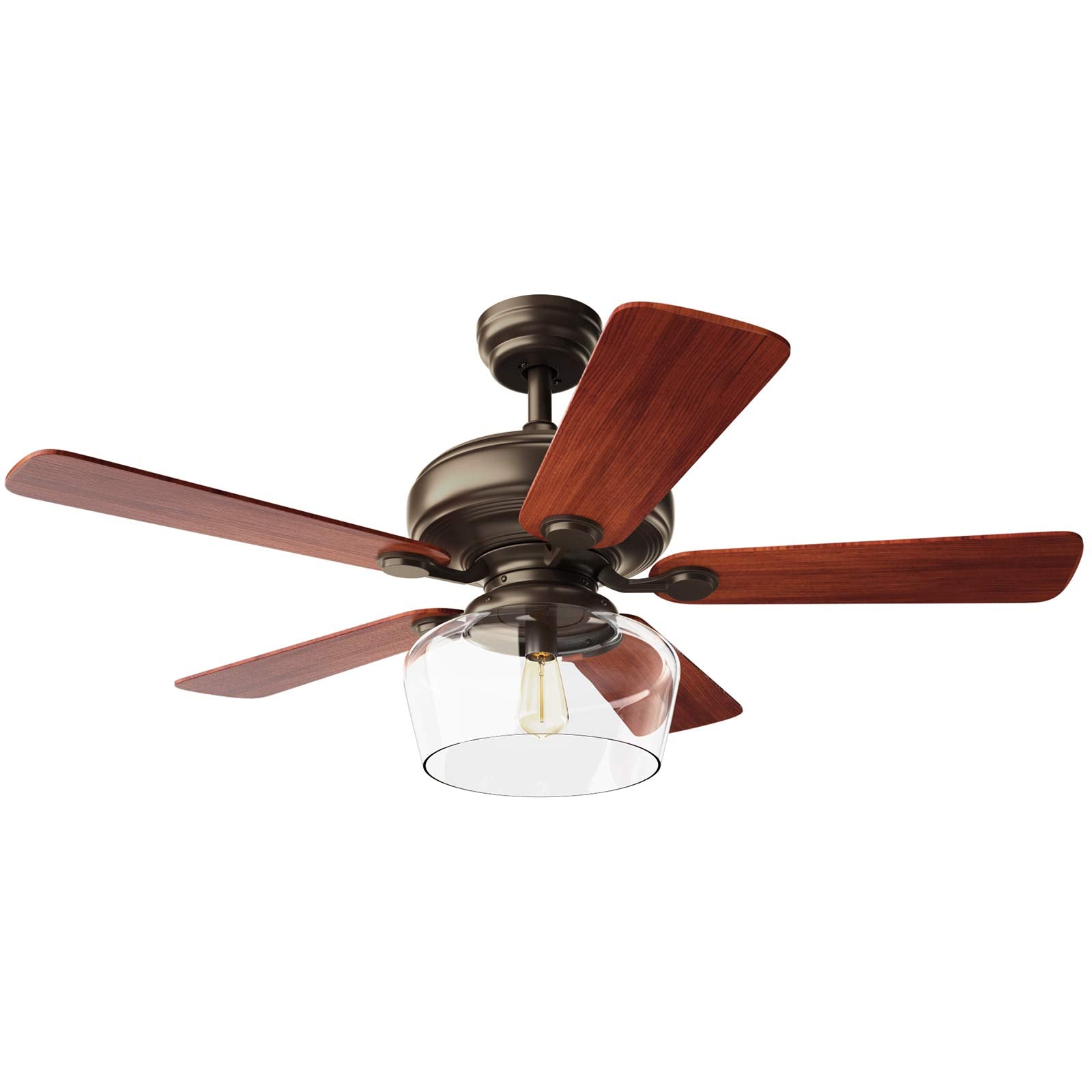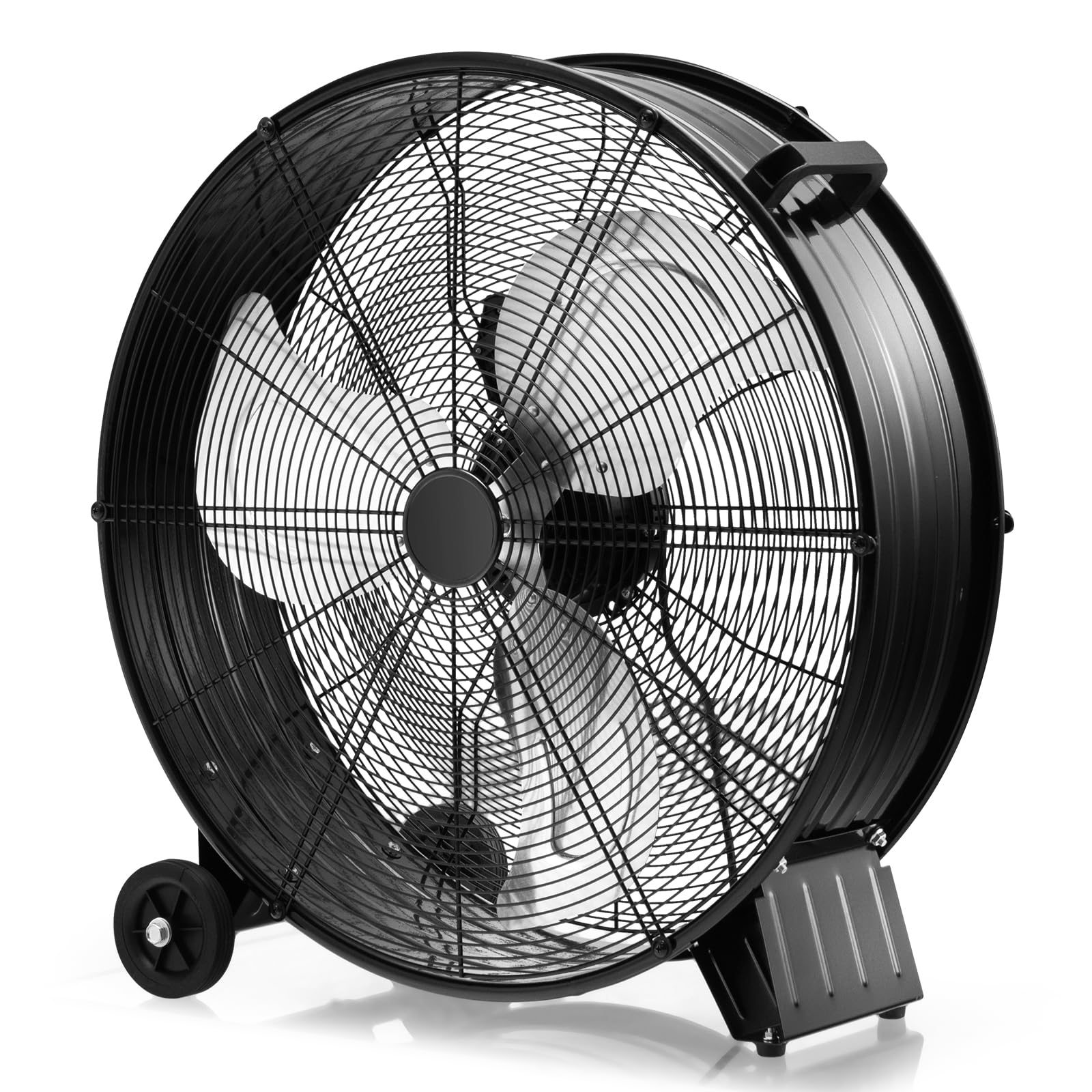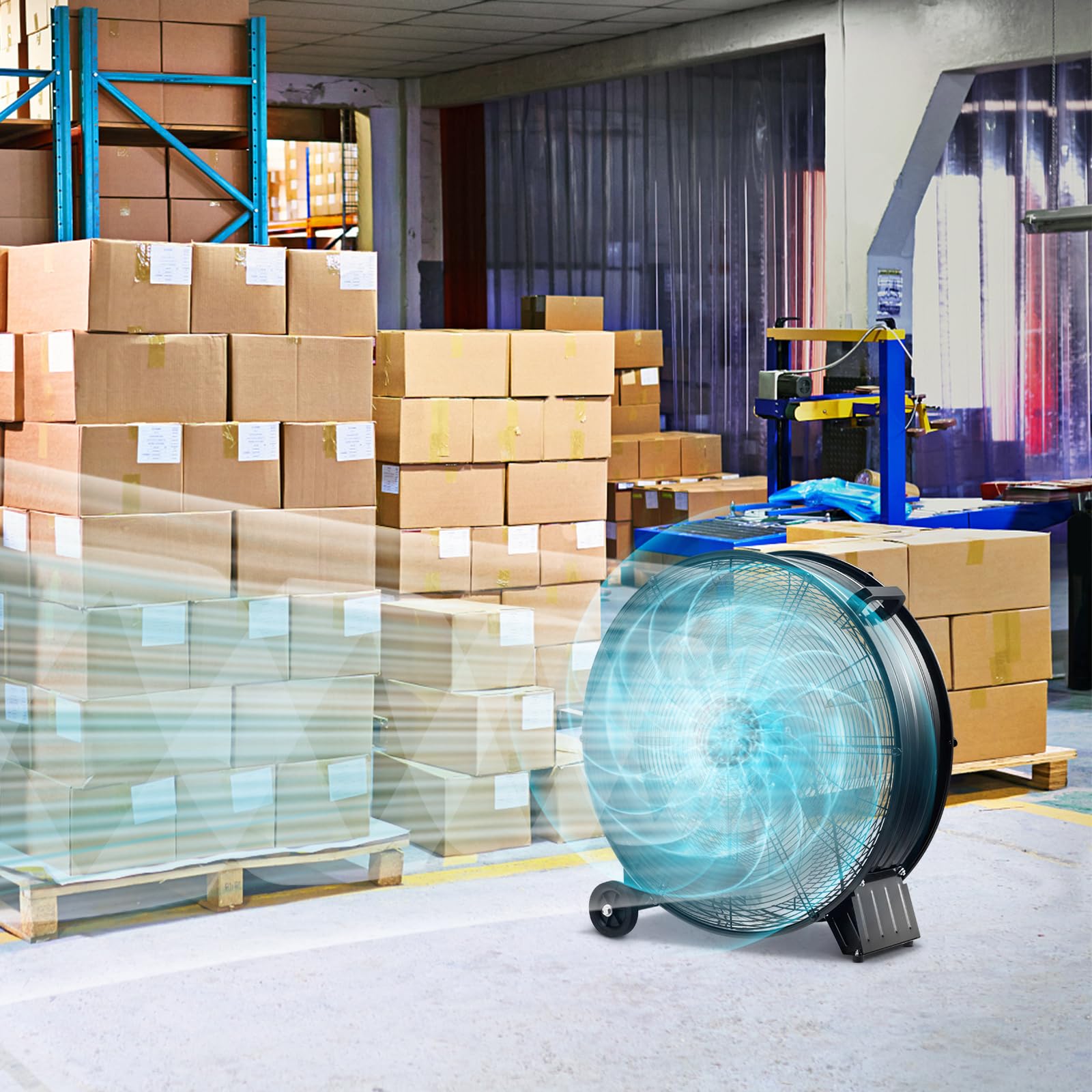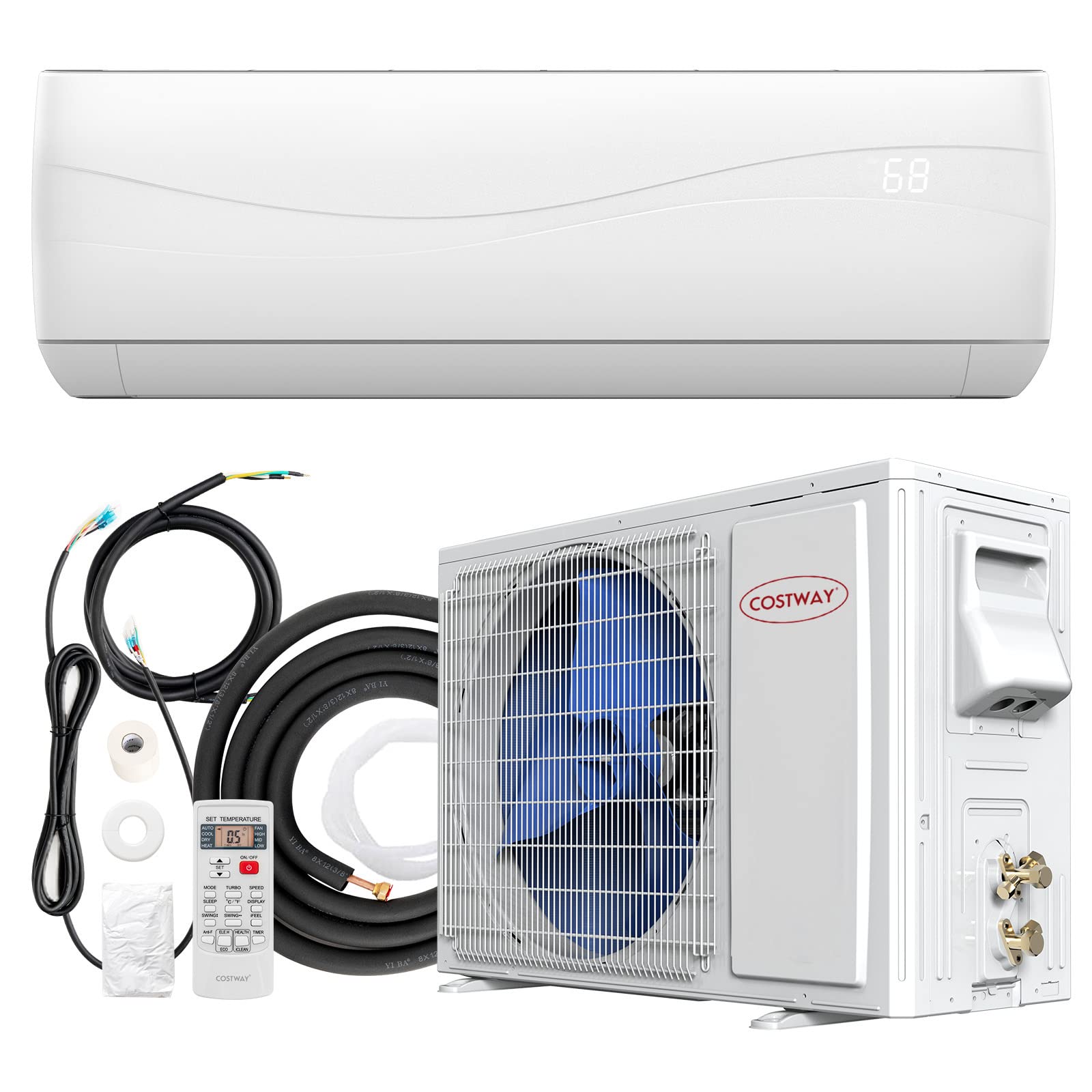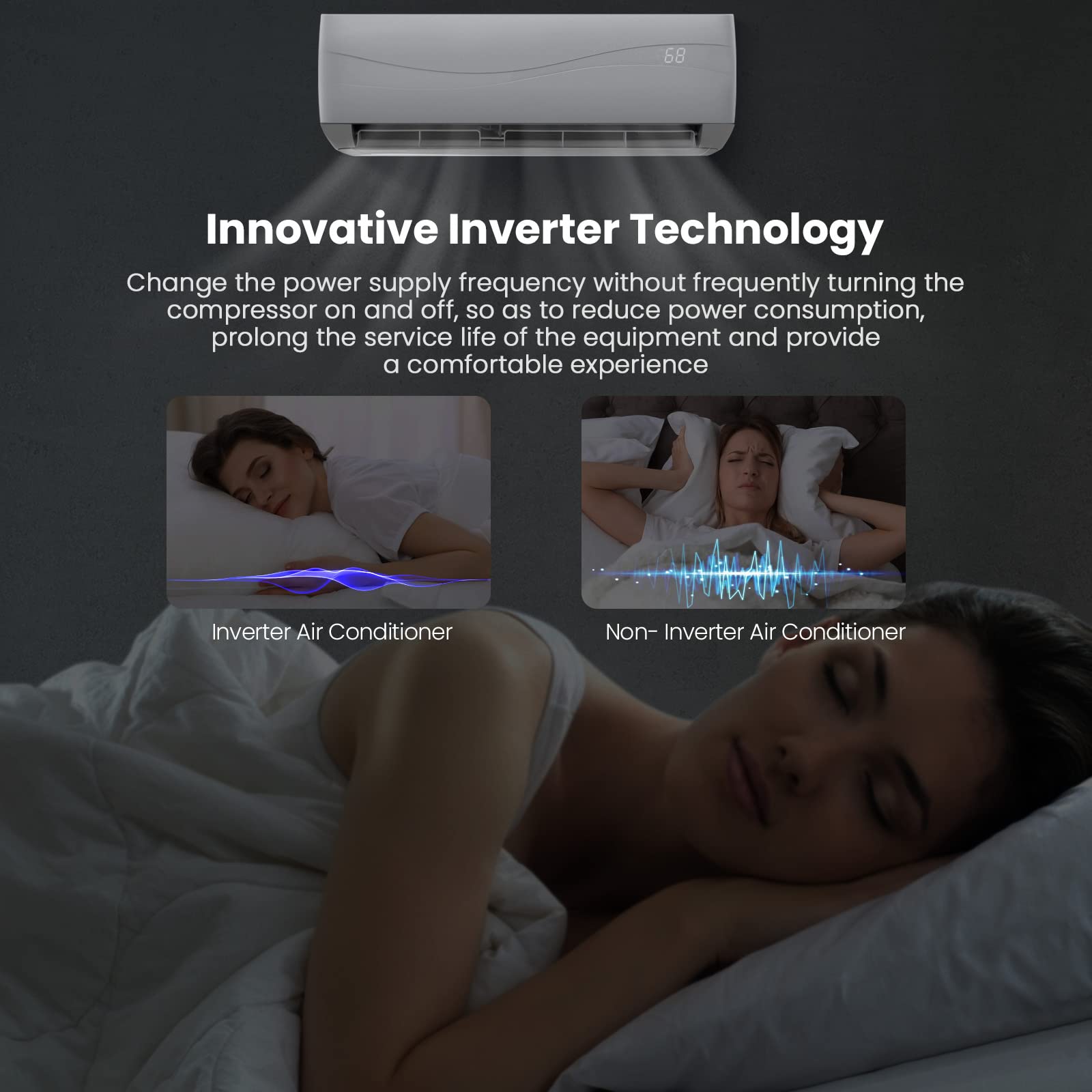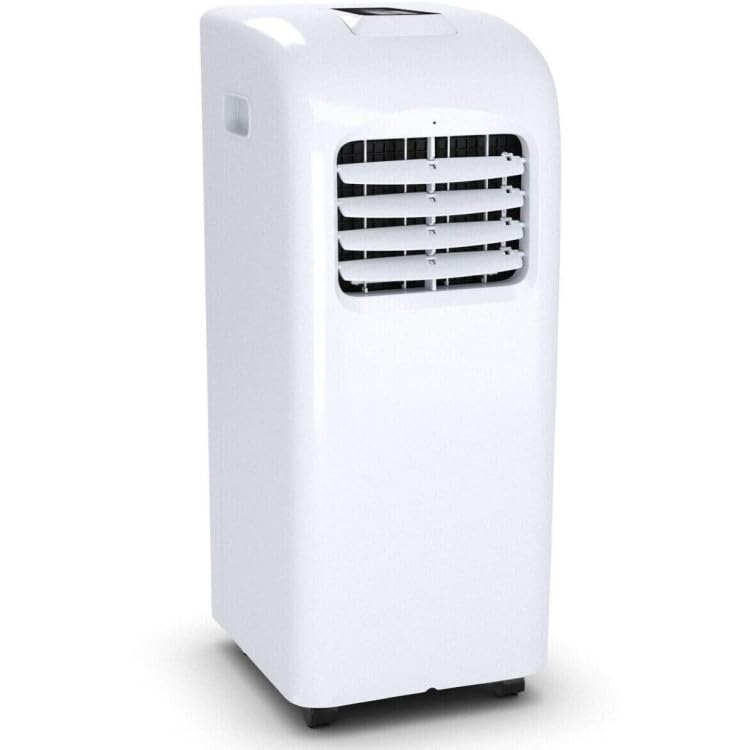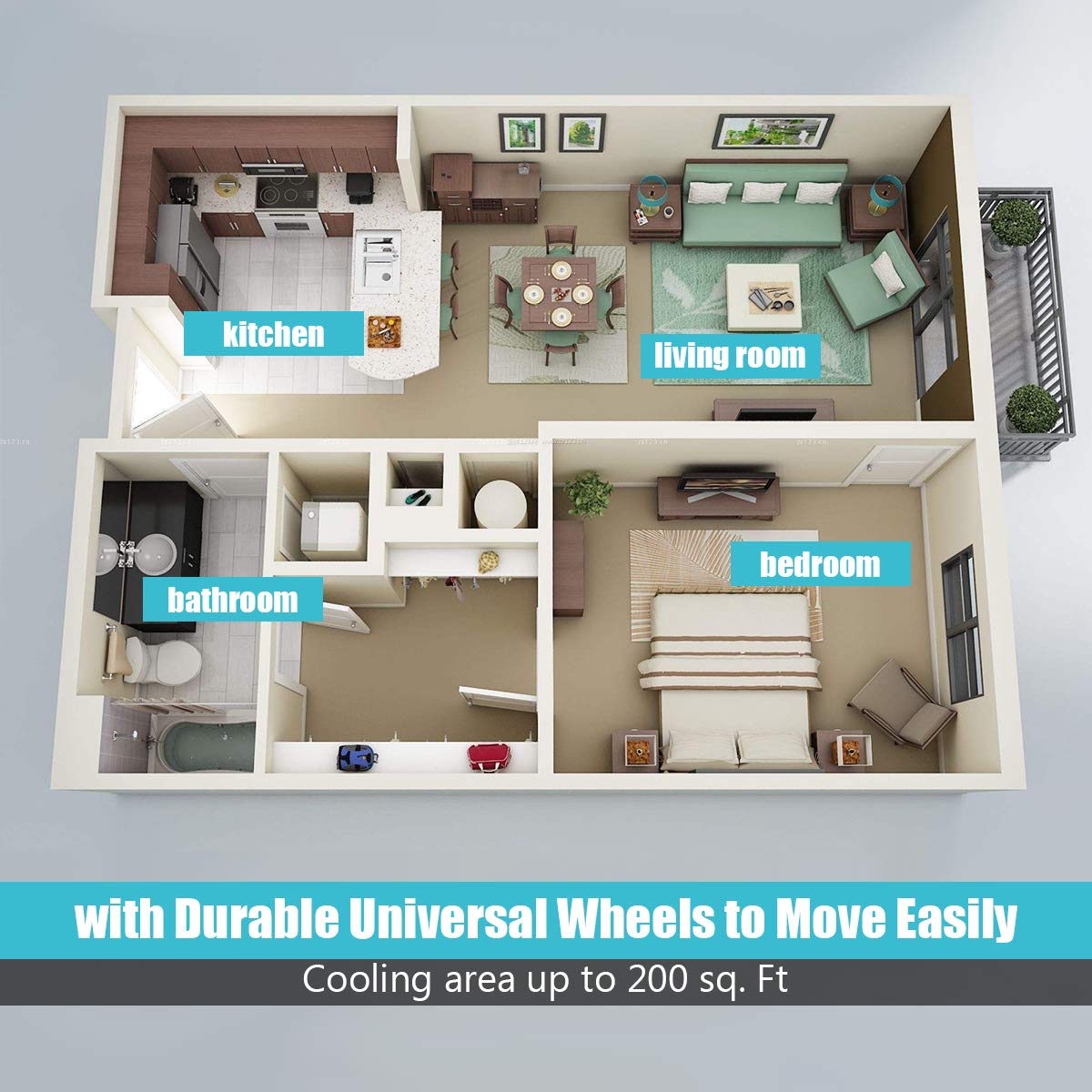Inside this Article:
Are Ceiling Fans Better Than Air Conditioner?
Summer brings the heat and sweltering air. And therefore air coolers and ceiling fans are two popular options for cooling. Each has its benefits and drawbacks, and the best choice depends on your needs, budget, and climate.
Let's see which one is better for your condition! We will talk about the working mechanics, merits, and demerits of the two appliances in this article.
How Do Fans and Air Conditioners Work?
Ceiling Fans:
Mechanism:
- The modern ceiling fan circulates air in the room, creating a wind-chill effect. This process increases the rate of evaporation from your skin.
- To be more specific, fans don't decrease the temperature of a room. The air can hit exposed skin and cause sweat to dry, which causes a cooling sensation. Fans cool you down by pushing away hot air and bringing in cooler air to contact your skin. This helps remove heat from your body.
Usage:
- They effectively ventilate the room and are best used in moderately hot conditions.
Air Coolers:
Mechanism:
- Portable air coolers use evaporative cooling to reduce air temperature. They draw in warm air, pass it through water-saturated pads, and then release the cooler air.
- This process is more effective in dry climates. An AC, also known as a heat pump, removes heat from the inside and releases it outside. It then brings in cool air with lower humidity levels.
Usage:
- They can lower the room temperature, providing a more noticeable cooling effect than fans.
Do I Need a Fan or an Air Conditioner?
Choosing a Fan:
Climate:
- Ideal for areas with moderate heat and humidity.
Moderate Heat:
- In areas where temperatures are not excessively high, fans can provide sufficient cooling by circulating the air.
Humidity:
- Fans do not add moisture to the air. They are a good option for humid climates. Extra humidity from air coolers would be too much in these areas.
Room Size:
- Suitable for larger rooms because of effective air circulation.
Large Rooms:
- Ceiling fans can help circulate air in spacious rooms, making them more comfortable without needing many devices.
Budget:
- More affordable with lower initial costs and running expenses.
Initial Cost:
- Fans are generally cheaper to purchase and install compared to air conditioners and air coolers.
Running Expenses:
- Fans consume less electricity, resulting in lower ongoing costs.
Purpose:
- Best for those who need air movement to feel cooler without significant temperature reduction.
Air Movement:
- Fans make you feel cooler by helping sweat evaporate, even if the temperature stays the same. They increase comfort.
Choosing an Air Cooler:
Climate:
- Best suited for dry and hot climates where humidity is low.
Dry Heat:
- In arid regions, the air conditioner cooler can significantly reduce the air temperature through evaporation, making them highly effective.
Low Humidity:
- Air coolers add moisture to the air, which can be beneficial in dry climates but counterproductive in humid areas.
Room Size:
- Effective in small to medium-sized rooms.
Smaller Spaces:
- The portable air conditioner can efficiently cool confined spaces, but their effectiveness diminishes in larger areas.
Budget:
- More cost-effective than air conditioners but slightly more expensive to run than fans.
Initial Investment:
- Generally, the evaporative air cooler is more affordable than air conditioners.
Operational Costs:
- While they consume more electricity than fans, air coolers are still cheaper to run than air conditioners.
Purpose:
- Ideal for those who need to lower room temperature and improve comfort in dry heat.
Temperature Reduction:
- Air coolers can lower the temperature by several degrees, offering relief from extreme heat.
Merits and Demerits of Air Coolers and Ceiling Fans
Ceiling Fans:
Merits:
Energy Efficient:
- Low electricity consumption.
Efficiency:
- Ceiling fans use minimal energy, making them cost-effective and environmentally friendly.
Low Maintenance:
- Requires minimal upkeep.
Durability:
- With proper care, ceiling fans can last for many years with little maintenance beyond occasional cleaning.
Quiet Operation:
- Generally quieter than air coolers.
Noise Levels:
- High-quality ceiling fans operate quietly, providing a peaceful environment.
Year-Round Use:
- Can circulate warm air in winter if they have a reverse mode.
Dual Functionality:
- Reversible fans can help distribute warm air during colder months, enhancing their utility throughout the year.
Demerits:
No Temperature Reduction:
Only create a cooling sensation, without actually lowering the air temperature.
Limitations:
- In extremely hot conditions, the lack of actual temperature reduction can limit the effectiveness of fans.
Less Effective in Extreme Heat:
- This may not be sufficient in scorching hot conditions.
Comfort Levels:
- In regions with extreme heat, the cooling effect of fans might not provide adequate relief.
Air Coolers:
Merits:
Effective Cooling:
- Particularly effective in dry climates.
Cooling Capacity:
- Air coolers can significantly lower the ambient temperature, making them ideal for hot, arid regions.
Environmentally Friendly:
- Use water instead of refrigerants.
Eco-Friendly:
- Air coolers have a smaller carbon footprint compared to air conditioners, which use harmful refrigerants.
Cost-Effective:
- Lower initial investment and operational costs compared to air conditioners.
Affordable:
- Air coolers provide a budget-friendly alternative to more expensive cooling systems.
Demerits:
Limited Effectiveness in Humid Areas:
- Efficiency drops significantly in high humidity.
Humidity:
- In humid conditions, air coolers can make the air feel muggy and uncomfortable, reducing their cooling effectiveness.
Maintenance:
- Regular cleaning and refilling of the water tank are necessary.
Upkeep:
- To maintain efficiency and prevent mold growth, air coolers require more frequent maintenance than fans.
Noise:
- Can be noisier due to the water pump and fan.
Noise Level:
- Air coolers can be louder than ceiling fans, especially in quiet places.
Which Consumes More Electricity?
Ceiling Fans:
Electricity Consumption:
- Extremely low, typically ranging from 10 to 75 watts depending on speed and size.
Energy Usage:
- The minimal power requirements of ceiling fans result in negligible electricity costs, making them an economical choice.
Cost:
- Minimal impact on electricity bills, making them a cost-effective option for continuous use.
Savings:
- The low operational cost of ceiling fans allows for prolonged use without significant increases in utility bills.
Air Coolers:
Electricity Consumption:
- Higher than ceiling fans, generally between 100 to 400 watts.
Power Needs:
- While the air conditioner unit consumes more electricity than fans, they are still more efficient than air conditioners.
Cost:
- More impact on electricity bills than fans, but still much lower than air conditioners.
Expenses:
- The increased power consumption of air coolers is offset by their lower overall cost compared to air conditioning units.
Can Ceiling Fans Replace Air Conditioning?
Effectiveness:
Ceiling Fans:
- Cannot replace air conditioning for cooling capacity, as they do not reduce air temperature. They are best used to enhance comfort in moderately hot conditions or conjunction with other cooling methods.
Limitations:
- While ceiling fans provide a cooling sensation, they are not a substitute for air conditioning in extremely hot environments.
Air Conditioning:
- Necessary for effectively lowering the temperature in extremely hot and humid climates.
Cooling Power:
- Air conditioners can make rooms cooler when fans and air coolers are not enough to provide relief from heat.
Practical Use:
Combination:
- In some cases, using ceiling fans along with air coolers or air conditioners can improve overall efficiency and comfort. Fans help distribute cool air more evenly, reducing the strain on other cooling devices.
Synergy:
- The combined use of fans and air coolers or conditioners can enhance cooling performance while optimizing energy use.
Considerations:
Climate and Personal Needs:
- The choice between ceiling fans and air conditioning depends on the specific climate conditions and individual comfort requirements.
Adaptability:
- Ceiling fans suffice in warm areas, but hotter regions may require air conditioning for improved cooling.
Conclusion
The best ceiling fan is a good option for circulating air efficiently and cost-effectively. They are ideal for improving air circulation in a room. On the other hand, air coolers are effective for cooling in dry climates. They work well in areas with low humidity levels.
For those in extremely hot and humid areas, air conditioning remains the most effective solution. Understanding the pros and cons of each option can help you make an informed decision to stay cool and comfortable this summer.
If you have any questions about the summer appliances, like ceiling fans and air conditioners, you can check the following articles to find more.


